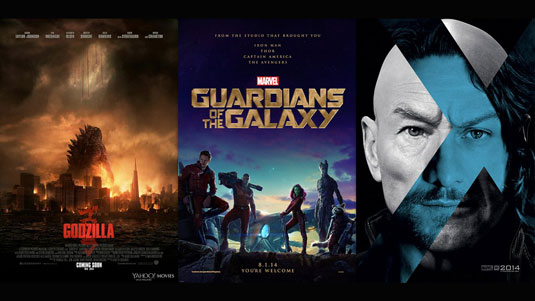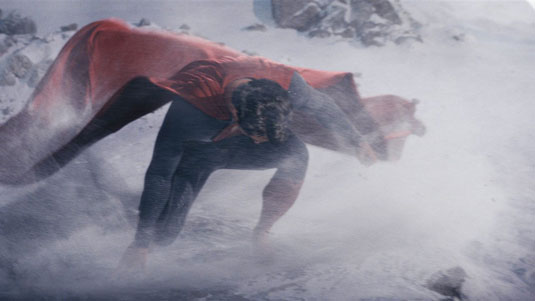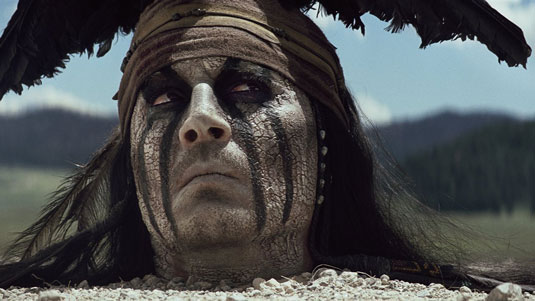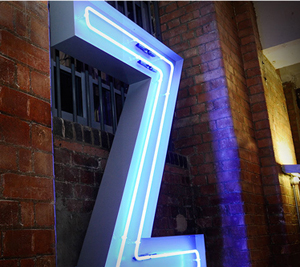
This content has been brought to you in association with HP ZED, a 'pop up shop' for creatives in London's Soho from Monday 29 September to Friday 10 October 2014. Register for ZED today. On Thursday 9 October, Ben Owen will be joining Marc Knapton, VFX supervisor at The Brewery, at a special session: How to get a job in 3D - book your free ticket today!
If you want a job at a big VFX house, there's no better source of information than the proverbial horse's mouth. So we sat down with Ben Owen, Global Head of Recruitment at MPC, to find out what kind of things they're looking for...
We kick off with the heart of the matter: your showreel. The advice from everyone we've talked on this is to keep it brief, and Owen's opinion is no exception.
"A minute or two really is the maximum," he says. But it's not about length per se, but about carefully selecting the best work you have. "Even 15-20 seconds of high quality work is better than a whole load of stuff I can't work with," he says.
Common mistakes
A common mistake is putting it in chronological order, he adds. Instead you should start with the very best work you have: "Being able to edit your own work critically is key."
As for format, nowadays Owen expects showreels to be online and easily accessible. "Vimeo or YouTube are both excellent services to use, and if the work is confidential it can be password-protected," he points out.

But rather than just pointing to a Vimeo or YouTube link, he'd rather see a dedicated website focusing on your work, which not only features the showreel but also any additional work and background info that's relevant.
Get the Creative Bloq Newsletter
Daily design news, reviews, how-tos and more, as picked by the editors.
Build a website
"A website can be a good way of rounding out someone's skillset," he explains. "If you're good at life drawing, for example, I don't need to see that on the showreel but that's the sort of thing that's useful to have on the website."
- Don't miss How to get a job in 3D at HP ZED: get a free ticket today!
In general, he continues, MPC looks for people to specialise in their jobs, but that doesn't mean they're not interested in people with multiple skillsets; quite the reverse. So it's a good idea to produce multiple showreels, each one showing a different specialist skill, where appropriate.
Technical breakdown
But the most important thing, he stresses, is that whatever work you include on your showreel, it should come with a technical breakdown.
"It's difficult to judge a piece of work unless I know what you've actually done and how you did it," Owen reasons. "That's especially the case if the work has been created by several people. So if you’re a compositor, for example, show us the mattes and passes you used."
Oh, and here's something you may not have thought of. "Always finish with a slide showing your contact details," Owen requests. "Make it as easy as possible for us," he begs with a smile.
The perfect CV
Once you've produced your perfect showreel, that's far from the end of it. You also need to produce the perfect CV and cover letter, showing the breadth of your education, qualifications and software skills.

But the good news is that, as far as MPC is concerned, you don't need to spend weeks polishing your CV design and selecting the most impressive paper stock. "It doesn't need to be formal - it can just be emailed," explains Owen.
Like your showreel, though, your CV needs to be concise. "We once had one that was 17 pages long," shudders Owen. "One or, at the most two, pages is what you should be aiming for."
Perhaps surprisingly, Owen adds that you shouldn't necessarily include everything on your CV. "You should aim your CV to lead into an interview," he explains. "So you don't want to give too much away or you won't have much left to talk about in the interview."
Jobs galore
It's worth working hard to get all this right because the good news is, Owen confirms, there are a continuing supply of jobs available at the leading visual effects house, which has studios in London, Amsterdam, Bangalore, Los Angeles, Mexico City, New York, Vancouver, and Montréal.
If you're already in a job and looking to move, you'll find a list of current vacancies in its film and advertising divisions here, as well as details of the company's recruitment roadshow.

If you're looking for your first job in the industry then MPC offers a range of internships. Applications for this year have closed but keep an eye on the website for details of next year’s programme. There's also a graduate programme called MPC Academy.
There's massive competition for all of these opportunities, of course. "Last year we had more than 500 applications for the internship programme in Europe alone," reveals Owen.
MPC Academy
The MPC Academy will be recruiting for junior roles across key disciplines with opportunities in FX, Lighting, Animation and Compositing, across London, Vancouver and Montréal. There'll be space for 50-100 graduates, Owen reveals.
He adds that the company has previously taken a similar number of graduates year on year, but that the new Academy will formalise this and give it more structure.
And what kind of people is MPC they looking for in general? "At the end of the days we're looking for potential," Owen explains. "A rounded skillset, an artistic eye, an ability to work as part of a team, enthusiasm and passion."
Got all that - and some mad software skills? Then what are you waiting for?
Free talk: How to get a job in 3D

Ben Owen will be joining Marc Knapton, VFX supervisor at The Brewery, at a special session at HP ZED London on Thursday 9 October entitled: How to get a job in 3D.
The advice and insight they offer could help you get a better job in 3D, so make sure you don't miss this must-attend session. Register to attend here!
This is an updated and revised version of an article that previously appeared on Creative Bloq

Thank you for reading 5 articles this month* Join now for unlimited access
Enjoy your first month for just £1 / $1 / €1
*Read 5 free articles per month without a subscription

Join now for unlimited access
Try first month for just £1 / $1 / €1

Tom May is an award-winning journalist and editor specialising in design, photography and technology. Author of the Amazon #1 bestseller Great TED Talks: Creativity, published by Pavilion Books, Tom was previously editor of Professional Photography magazine, associate editor at Creative Bloq, and deputy editor at net magazine. Today, he is a regular contributor to Creative Bloq and its sister sites Digital Camera World, T3.com and Tech Radar. He also writes for Creative Boom and works on content marketing projects.
